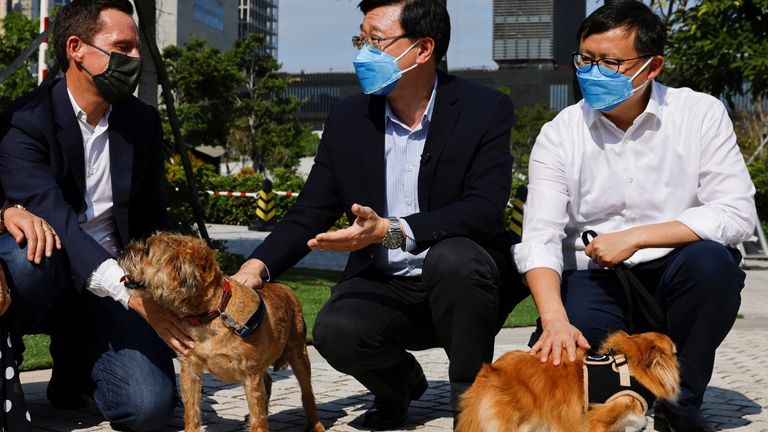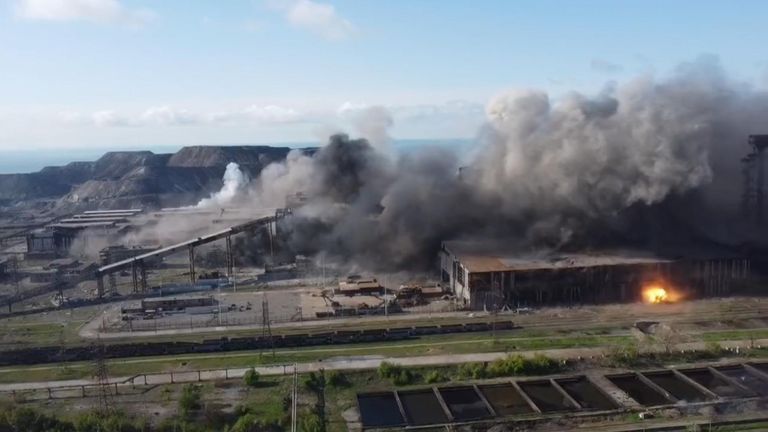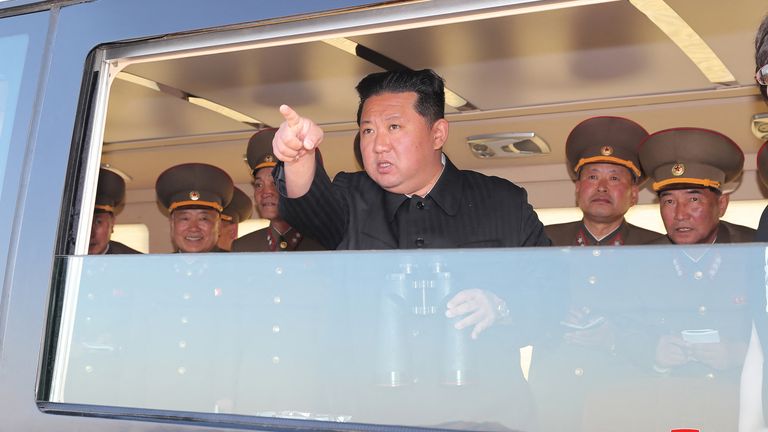
The commanders of the Ukrainian forces holding out against Russian troops in the Azovstal plant in Mariupol lashed out at the government in Kyiv for not doing enough to help them defend the city.
“Our government failed in the defence of Mariupol, failed in the preparation of the defence of Mariupol,” said Ilya Somoilenko, a lieutenant in the Azov regiment, the military unit that has been leading the Ukrainian resistance from a last redoubt at the vast steel works on the edge of the city.
The “authorities have been sabotaging the defence of Ukraine for eight years,” he said.
Sviatoslav Palamar, deputy commander of the Azov regiment, accused the government of “cynicism” for celebrating the evacuation of small groups of civilians when so many people had been killed in Russia’s assault on the south-eastern port city.
The two officers were speaking to reporters via Zoom from one of the bunkers at the besieged Azovstal facility.
Their comments are the first public display of dissent within the Ukrainian military which has otherwise celebrated its battlefield achievements in fending off Russia’s full-scale invasion over 10 weeks. It is also a sign of the desperation of the Ukrainian forces who are under constant artillery bombardment and repeated attempts by Russian forces to storm their redoubt underneath the steel plant.
All remaining women, children and seniors were evacuated from the steelworks in the south-eastern port city on Saturday, according to the deputy prime minister Iryna Vereshchuk. In total 300 civilians have been freed from the plant.
President Volodymyr Zelensky said Ukrainian authorities, in conjunction with the UN and International Committee of the Red Cross, were planning to evacuate all medical staff and wounded soldiers.
Zelensky has also called for Ukrainian military personnel — thought to number between several hundred and 2,000 — to be allowed to leave the vast facility. He said on Friday international diplomatic efforts were under way to secure their safe passage.
The next phase of the evacuation would be “extremely difficult” but “we do not lose hope,” Zelensky said.
Somoilenko said “surrender was not an option because Russia is not interested in our lives, is not interested in letting us live”. He appeared to criticise what he said was an attempt to negotiate with Russia over their release and said they need a “third party to intervene to extract the garrison”.
“The evacuation could be done if some people did their jobs better,” Somoilenko added.
He claimed that the defenders of Mariupol had killed 2,500 Russian soldiers and had “blocked” 25,000 troops and therefore accounted for a disproportionate share of Ukraine’s success against the invaders.
The Azov battalion has far-right origins but was incorporated into the Ukrainian armed forces in 2014 and is considered one of the best trained parts of the military.
Ukrainian officials say Moscow has been trying to crush the resistance at Azovstal so that president Vladimir Putin could present a battlefield success when Russia celebrates the Soviet victory over Nazi Germany on May 9.
Russian forces continued to attack Ukrainian positions along the 1,000km frontline and struck targets over the weekend, including Odesa. Up to 60 civilians are feared dead after a Russian air strike on a school in eastern Ukraine.
A school in Belogorovka, a village in the Donetsk region close to the front line of fighting between Russian and Ukrainian troops, was hit by a bomb on Saturday, according to the regional administration. Residents of the village were thought to be sheltering in the building and an adjacent cultural centre when it was struck.
Serhiy Haidai, governor of the Luhansk region, said as many as 60 civilians were likely to have died in the blast and ensuing fire and another 30 were rescued from under the rubble. The Financial Times could not independently confirm the scale of the casualties.
https://news.google.com/__i/rss/rd/articles/CBMiP2h0dHBzOi8vd3d3LmZ0LmNvbS9jb250ZW50LzJhNDk2MGNmLTI5NzUtNDFjMC05OWRhLWY3YjZmY2MxY2QzYdIBAA?oc=5
2022-05-08 08:19:05Z
1402967704





